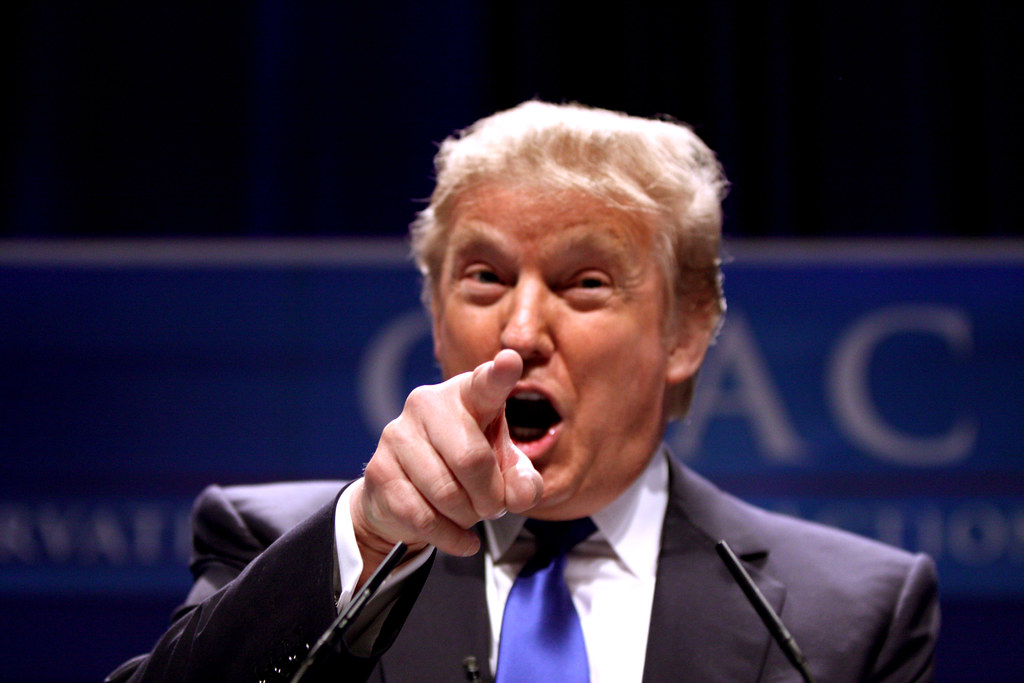Critics have been warning that Trump’s attacks on the rule of law are doing lasting damage to the justice system, and that prediction became all too real this week.
The New York Times weighed in on Trump’s ongoing attacks on America’s judicial system, reporting that it “threatens to erode trust in the law.”
The article began with these chilling words:
It is a once-unimaginable scenario: Sometime soon in an American courtroom, a criminal defense lawyer may argue that the prosecution of an MS-13 gang member is a politically motivated “witch hunt” built around a witness who has “flipped” and taken what the lawyer calls a plea deal of dubious legality.
He will be quoting the president of the United States.
That is potentially the gravest danger of President Trump’s sustained verbal assault on the country’s justice system, legal experts say. In his attempt at self-defense amid the swirl of legal cases and investigations involving himself, his aides and his associates, Mr. Trump is directly undermining the people and processes that are the foundation of the nation’s administration of justice.
Think that couldn’t or wouldn’t ever happen? Think again. It nearly happened earlier this week.
Business Insider reported late Tuesday that, in a New York trial, “an attorney for a crack dealer tried to use Trump’s attacks on ‘flipping’ in his closing argument in a court case.”
Kafahni Nkrumah, the attorney for Jamal “Mally” Russell, began to mention the verdict surrounding Trump’s former campaign chairman, Paul Manafort, before the judge intervened.
Nkrumah reportedly later said he intended to reference Trump’s suggestion that flipping “ought to be illegal” that he had made on the show “Fox and Friends” earlier that day.
“I believe that the president’s opinion of cooperators is just as pertinent as anyone else’s opinion about cooperators,” Nkrumah was quoted as saying.
Fortunately, in this instance, the judge disagreed and shut him down:
US District Judge Gregory Woods did not agree and barred Nkrumah from continuing with this line of argument.
Woods emphasized that flipping is not illegal and added that he silenced Nkrumah because he was “concerned about the confusion” that suggesting otherwise could’ve “wrought” among members of the jury.
Concerns that Trump is undermining the rule of law have intensified recently in the wake of the events of last week.
Rolling Stone provided the following synopsis of what they described as ” the longest and lowest week of the Trump presidency”:
Trump’s ex-campaign chairman (Paul Manafort) was convicted on eight counts of tax and bank fraud. His former lawyer and fixer (Michael Cohen) — who said last fall that he’d take a bullet for the man — pleaded guilty to eight counts, including campaign finance violations that implicate the president. Immunity was granted to one powerful friend with direct knowledge of damaging secrets [National Enquirer CEO David Pecker], followed by news of an immunity deal given to the CFO of the Trump Organization (Allen Weisselberg).
The Washington Post reported on the broader implications of Trump’s assault on the rule of law, last week, reporting that:
Taken together, critics said, the president’s actions demonstrate his shifting, inconsistent principles when it comes to law enforcement and suggest a dangerous lack of understanding about the criminal justice system that is likely to have repercussions well beyond the White House.
“When people at the top show contempt for law and contempt for the legal process, that’s bound to trickle down,” said Pamela Karlan, a Stanford University law professor.
Turning their attention to the long-established practice of “flipping,” The Washington Post added:
The practice is one of the most powerful tools investigators use to dismantle secretive, insular criminal organizations, including gangs, and to uncover other crimes…
Alberto R. Gonzales, who was attorney general under President George W. Bush, and Neal Katyal, solicitor general under President Barack Obama, both said it was a necessary tool.
“If President Trump’s views were the law, literally thousands of criminals would be on the street today,” Katyal wrote in an email.
The Washington Post concluded their article with the following insights of two prominent former federal prosecutors:
Preet Bharara, the former U.S. attorney for the Southern District of New York who was fired by Trump, said the president has “turned the concept of the rule of law upside down.” On the one hand, Trump talks about tough law enforcement tactics when it comes to going after gangs such as MS-13. On the other hand, Bharara said, the president “preaches nothing but softness when it comes anything that touches people close to him.”
“I’m a tough guy, tough guy, tough guy, but anyone who tries to use that approach with my people is out of line,” Bharara said, referring to Trump’s philosophy.
Patrick Cotter, a former federal prosecutor who was part of the team that convicted Gambino crime family boss John Gotti, described Trump’s statements about the criminal justice system as “the modern-day version of a particularly inarticulate mobster.”
“If you remove all the lies, there’s nothing left,” Cotter said.


You must be logged in to post a comment Login